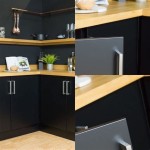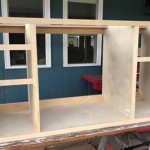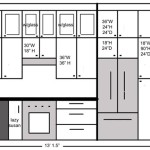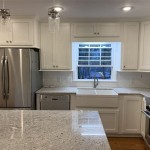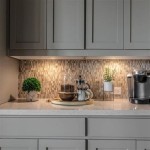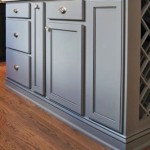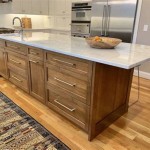Breathe New Life into Your Kitchen: A Comprehensive Guide to Spray Painting Kitchen Cabinets
Revitalizing your kitchen through a paint job can be a cost-effective and stylish solution. Spray painting kitchen cabinets can enhance the aesthetic appeal of your home while also improving their functionality. This comprehensive guide will equip you with the essential knowledge and techniques to achieve a professional-looking and durable finish.
Preparation is Paramount
Before embarking on the painting process, meticulous preparation is crucial to ensure a flawless outcome. Begin by thoroughly cleaning the cabinets with a degreaser to remove grime, grease, and dust. Next, use sandpaper or a sanding sponge to scuff the surfaces lightly, creating a better adherence for the paint. Remove hardware and hinges for easier painting.
Choosing the Right Paint and Equipment
Selecting the appropriate paint is essential. Opt for a cabinet-specific paint designed to withstand wear and tear. Consider the existing color and desired finish when choosing a hue. For spray painting, choose a high-quality spray gun with a fan pattern adjustable to suit the size of your cabinets.
Masking and Protection
Protect surrounding surfaces from overspray by masking off countertops, backsplashes, and appliances with masking tape and plastic sheeting. Securely cover floors with drop cloths to prevent paint splatter.
Lighting and Ventilation
Ensure adequate lighting in your workspace to clearly see the areas you are painting. Proper ventilation is also essential to minimize the inhalation of fumes. Open windows or doors and consider using fans for air circulation.
Spray Painting Techniques
Shake the paint can thoroughly and adjust the spray gun settings according to the manufacturer's instructions. Holding the gun perpendicular to the cabinet surface, apply thin, even coats. Allow each coat to dry completely before applying the next to prevent runs and drips.
Dealing with Minor Imperfections
Minor imperfections such as runs or drips can be easily remedied. Use a fine-grit sandpaper to smooth out rough spots and touch up with additional paint. For larger imperfections, consider applying a second coat of paint to the entire surface for a uniform look.
Finishing Touches
Once the paint has completely dried, reassemble the hardware and hinges. Remove any remaining masking tape and plastic sheeting. Allow the cabinets to cure for the recommended time before putting them back into full use. Clean any paint residue from surfaces with a damp cloth.
Tips for Optimal Results
* Practice spraying on a scrap surface to familiarize yourself with the spray gun. * Apply multiple thin coats instead of one thick coat to prevent drips and runs. * Allow ample drying time between coats for proper adhesion. * Use a tack cloth to remove any loose dust or particles before applying the final coat. * Consider using a primer for a more durable and even finish.
Diy Spraying Kitchen Cabinets Like A Pro Part Two Made With Grace And Grit

How To Spray Paint Kitchen Cabinets Diy Family Handyman

How To Spray Paint Kitchen Cabinets Diy Family Handyman

How To Spray Paint Kitchen Cupboards And Achieve A Professional Finish Easy Diy Tips Express Co

Painting How To Spray Paint Kitchen Cupboards In Three Steps For A Professional Finish Express Co

How To Paint Inside Kitchen Cabinets In 7 Steps Benjamin Moore

What Is The Best Spray Paint On Kitchen Cabinets

Everything You Need To Know About Painting Kitchen Cabinets

How To Paint Kitchen Cabinets A Step By Guide Confessions Of Serial Do It Yourselfer

Painting Kitchen Cabinets With A Sprayer Lemon Thistle
Related Posts

